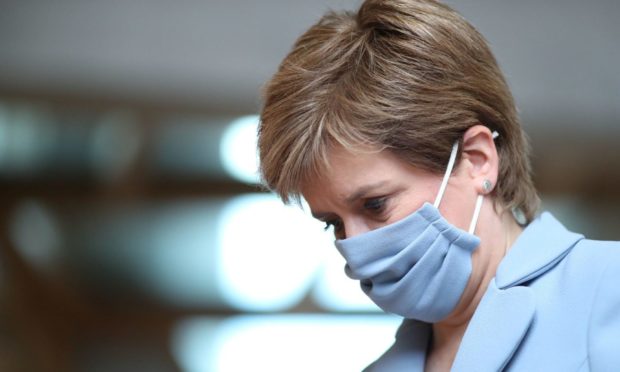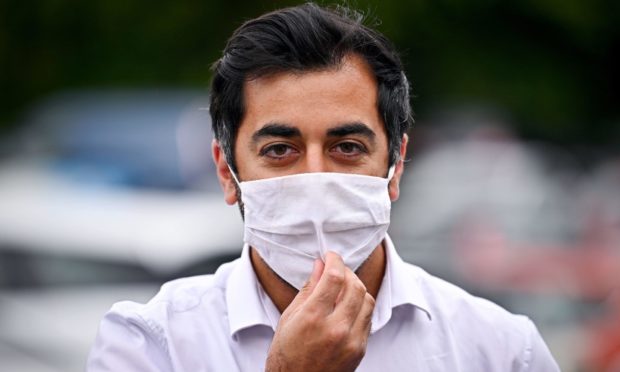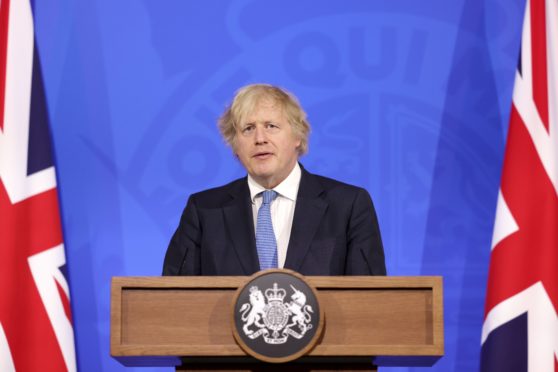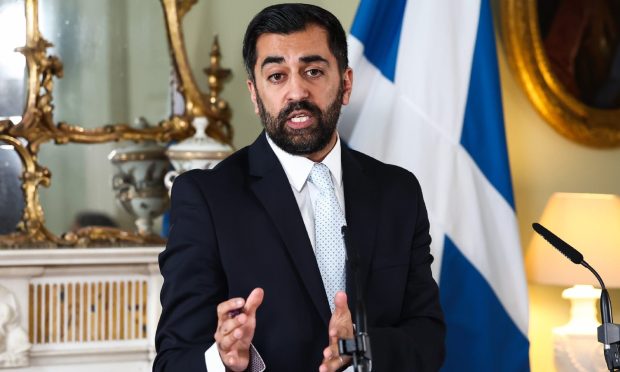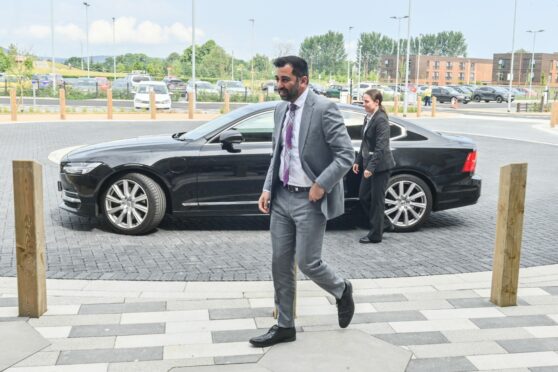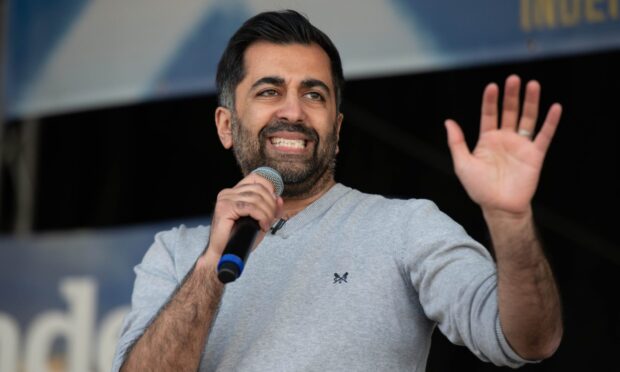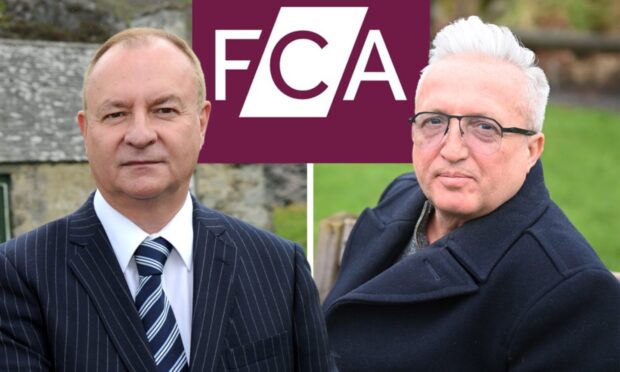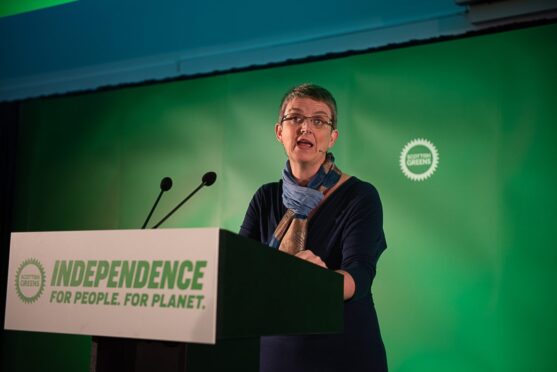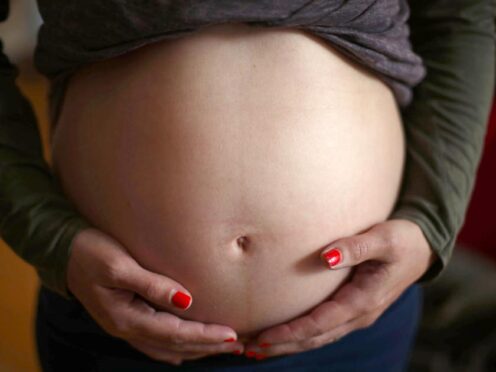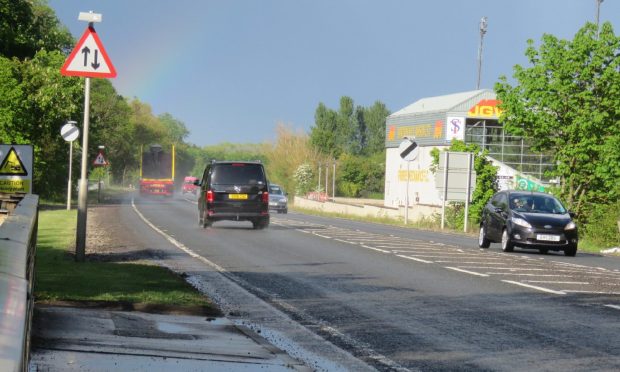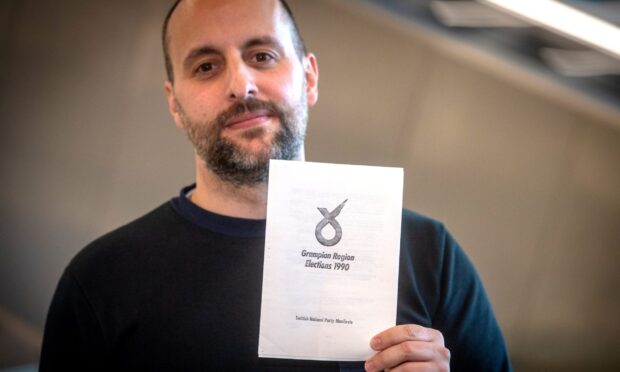Nicola Sturgeon is expected to delay Scotland’s route out of lockdown restrictions after Boris Johnson paused progress in England.
The First Minister is updating the timetable in a statement at Holyrood today, faced with growing concern about the impact of the Delta variant first identified in India.
On Monday evening, the Prime Minister accepted his controversial decision to signpost a “freedom” date for England would need to be reviewed to save thousands of lives and keep pressure off the NHS.
Mr Johnson was supposed to end lockdown there in “step four” of his plan on June 21. The date has now been shifted in England to July 19.
In Scotland, Ms Sturgeon has heard the same advice about rising infections and the increased risk of hospital admission from the Delta variant.
The First Minister had hoped to put Scotland in Level 0 after June 28.
‘People are going to get seriously ill’
Professor Stephen Reicher, one of Ms Sturgeon’s scientific advisers, said on Monday: “In a situation where things are getting worse we don’t know how much worse they’re going to get. We don’t know how many people are going to get seriously ill.
“There’s still a lot of damage that can be done, therefore it makes good sense to pause.”
On Sunday, Scottish health secretary Humza Yousaf said the country is in the early days of a “potential third wave” of infections.
He said the India variant is a “bump in the road” and admitted it is “right to question” the proposed June 28 country-wide move to Level 0.
Scotland’s national clinical director, Jason Leitch, also raise concern about the “horrid” Delta variant.
He said: “Everything still works – distancing, ventilation, handwashing all still works – but what’s new about the Delta variant, and this is horrid, and we’ve learned it increasingly over the last few weeks, is the second dose is required for decent protection.
“You get about 30% protection from one dose, you get 80 to 85% from two. So therefore, if you’re thinking of this as a timeline, we’ve lost about eight to 10 weeks on that journey.
What are Scotland’s levels?
The Western Isles, Orkney and Shetland already made the move to Level 0, as part of changes announced earlier this month.
Mainland Scotland remains at either Level 1 or 2, depending on the number of cases in each local authority area. The north of the mainland, including Aberdeen, is at level 1. Dundee was kept at level 2 for longer over concerns with the level of coronavirus in the community.
Under Level 0 rules, it is permitted to meet socially in groups of up to eight people from four households in your own home or theirs.
It is also possible to meet with up to 10 people from four households in a cafe, pub or restaurant and with up to 15 people from 15 households outdoors.
Why is the Delta variant causing alarm?
Researchers think the Delta variant, first identified in India, is associated with twice the risk of hospital admission compared with the earlier Kent variant.
New data, published on Monday, shows two vaccine doses provide strong protection but at a lower level.
Based on data analysed from 5.4 million people in Scotland, the Delta variant is now the dominant form of Covid-19 in the country.
For the study period – April 1 and June 6 this year -there were 19,543 community cases and 377 admissions to hospital where a specific variant of Covid-19 was confirmed.
Of these totals, 7,723 cases and 134 hospital admissions were found to have the Delta variant, which is thought to be about 60% more transmissible than the previously dominant Alpha variant.
As with other variants, people with underlying conditions were more at risk of being admitted to hospital, researchers said.
‘Dominant strain’
Professor Aziz Sheikh, director of the University of Edinburgh’s Usher Institute and EAVE II study lead, said: “Over a matter of weeks the Delta variant has become the dominant strain of SARS-CoV-2 in Scotland.
“It is unfortunately associated with increased risk of hospitalisation from Covid-19.
“Whilst possibly not as effective as against other variants, two doses of the Pfizer/BioNTech and Oxford/AstraZeneca vaccines still offer substantial protection against the risk of infection and hospitalisation.
“It is therefore really important that, when offered second doses, people take these up, both to protect themselves, and to reduce household and community transmission.”
Prof Sheikh told a press briefing that any delay in lockdown measures being relaxed enables more people to get the greater protection that two vaccine doses offer.
He said: “I think any sort of increase in the window of opportunity before lockdown measures are completely brought to an end, will be helpful, because that will help us to control community transmission.”
What did Boris Johnson say?
At his press conference on Monday evening, the Prime Minister said it is “sensible” to put back the ending of all legal limits on social contact to July 19 in England.
Fans are expected to be able to attend the Euro 2020 semi-finals and final in Wembley as the pilots on attendance of large events continue.
Mr Johnson said: “It’s unmistakably clear that vaccines are working and the sheer scale of the vaccine roll-out has made our position incomparably better than in previous waves.
“But now is the time to ease off the accelerator because by being cautious now we have the chance in the next four weeks to save many thousands of lives by vaccinating millions more people.”
